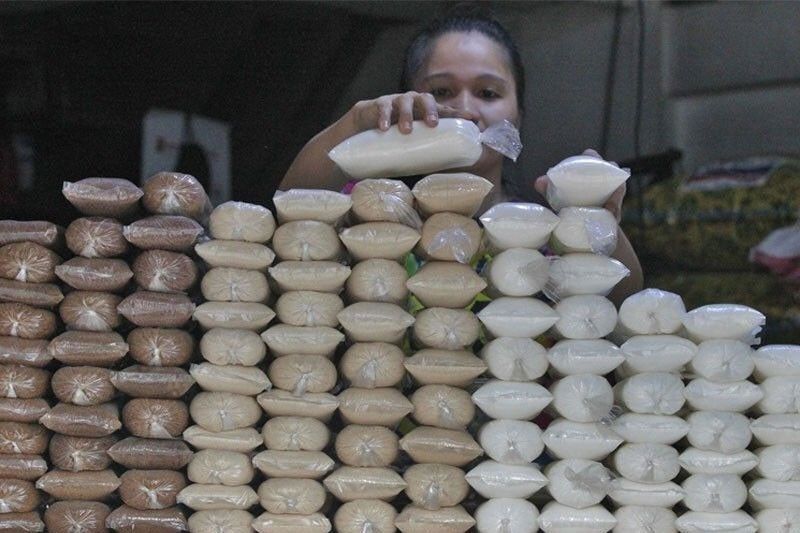No sugar MAV this year – SRA
A retailer arranges packs of sugars in Pandacan, Manila on January 18, 2023. STAR / Ernie Penaredondo MANILA, Philippines — The government did not allow the importation of sugar at a lower tariff rate in the current minimum access volume (MAV) year since the country has ample stocks to meet domestic consumption, the Sugar Regulatory […]


A retailer arranges packs of sugars in Pandacan, Manila on January 18, 2023.
STAR / Ernie Penaredondo
MANILA, Philippines — The government did not allow the importation of sugar at a lower tariff rate in the current minimum access volume (MAV) year since the country has ample stocks to meet domestic consumption, the Sugar Regulatory Administration said.
SRA administrator and CEO Pablo Luis Azcona said the Department of Agriculture (DA) decided not to open a sugar MAV program since domestic stocks are enough to meet the requirements of both households and industrial users.
The decision was made in August 2023 by then Senior Agriculture Undersecretary Domingo Panganiban, a few months before the DA opened its call for applications for the MAV year 2024 last November.
Any imports made under the MAV mechanism will have a lower tariff than imports that enter the country outside the MAV as part of the country’s trade commitments.
In the case of sugar, imports within MAV have a 50 percent tariff while those outside MAV are levied with 65 percent tariff.
However, any sugar imports – whether within or outside MAV – from ASEAN member-countries will have to pay only a five percent tariff under existing trade agreements.
The country’s MAV year begins on Feb. 1 and ends on Jan. 31 of the following year. The DA started issuing last week the import certificates for the commodities with MAV this year.
“The problem with the MAV is that it is a program separate from the SRA and the arrival schedule is February to (January of the following next year]_which hits our local produce,” Azcona told The STAR.
The absence of a sugar MAV program this year would provide price support to local farmers who have been reeling from declining farmgate prices of sugarcane, he said.
Prior to last year, the government has not opened the sugar MAV since 2002 since the country has sufficient stocks of the commodity during February, which is the start of the MAV calendar that coincides with the peak milling season.
However, the government was forced to open the sugar MAV last year because of the need to augment domestic stocks to meet demand from food manufacturers and beverage makers as well as to arrest skyrocketing retail prices.
The 64,050-metric ton sugar MAV last year was fully utilized.
In December last year, Agriculture Secretary Francisco Tiu Laurel Jr. told lawmakers the country might need to import a “conservative” volume of 200,000 MT of sugar this year.
Azcona has emphasized that there is no plan and need to open a sugar import program in the near term since the country has sufficient supply.
Latest SRA data showed that as of Feb. 18, total physical sugar stock stood at 583,282 MT, up by 38.61 percent from last year’s 420,821.78 MT. Meanwhile, total refined sugar stock was at 542,341.85 MT, more than double the 202,679.45 MT recorded last year.














